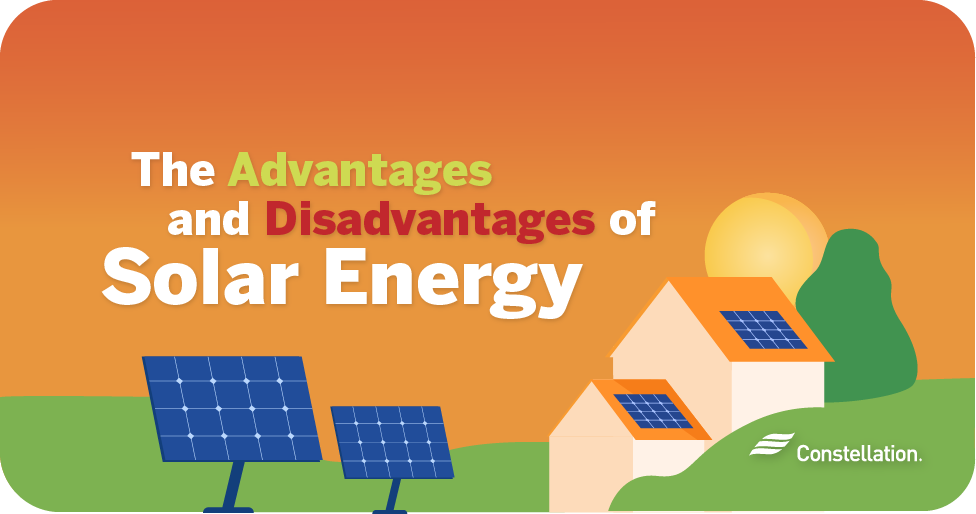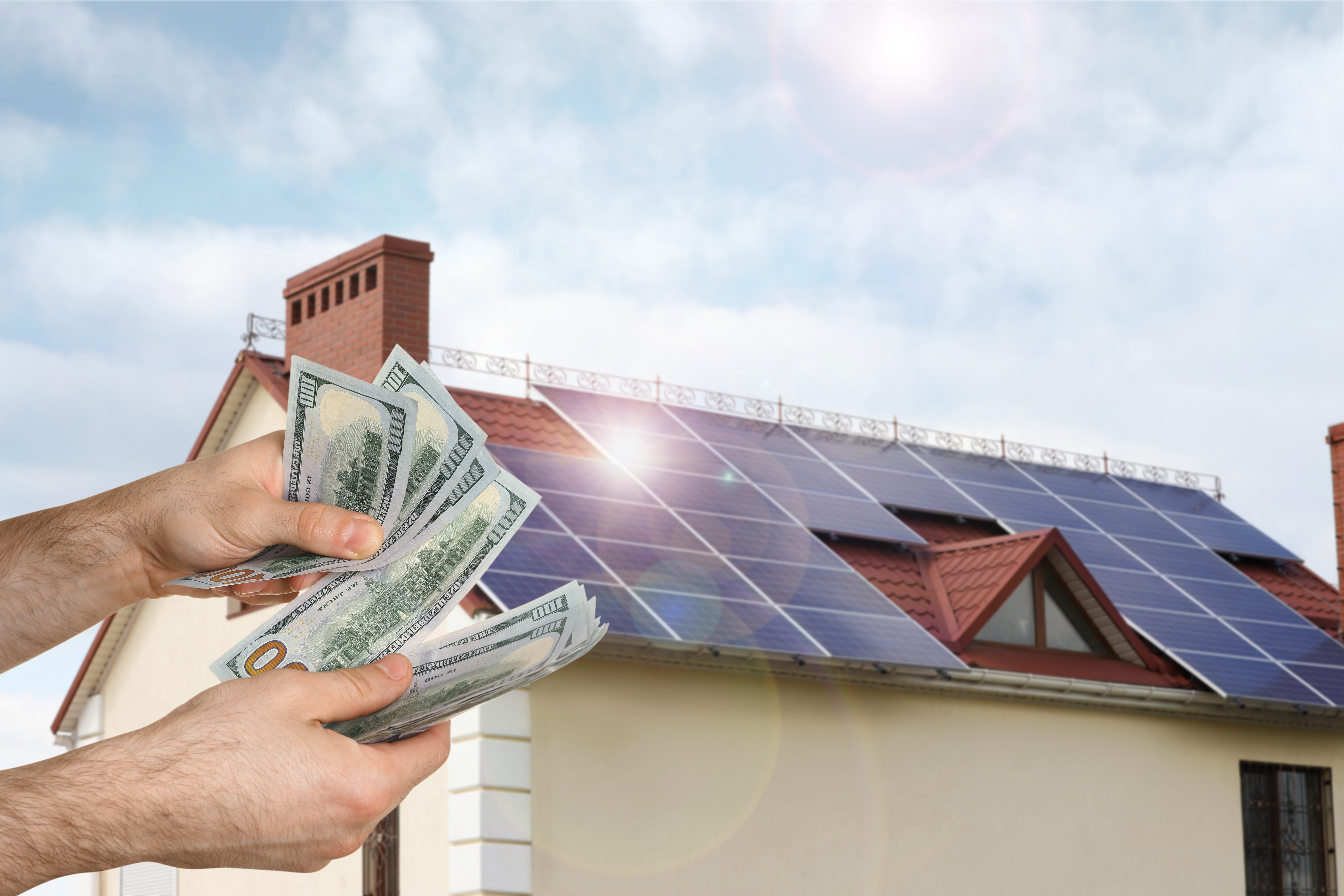Just How Solar Energy Can Help You Conserve Money and Decrease Your Carbon Impact
The combination of solar power right into your power portfolio presents an engaging possibility for both financial cost savings and environmental stewardship. As various government motivations end up being readily available, the concern develops: exactly how can one efficiently navigate the first financial investments and recurring benefits of solar modern technology to make best use of both financial and environmental gains?
Comprehending Solar Energy Cost Savings
While the shift to solar energy often involves a first investment, comprehending solar energy financial savings is important for house owners and organizations alike. Solar power systems can substantially minimize electrical power bills by taking advantage of the sun's power, equating right into considerable long-lasting economic advantages. By generating their own electrical power, individuals decrease reliance on grid power, which undergoes fluctuating rates. These savings can accumulate gradually, frequently causing a quick roi.
Furthermore, solar power systems may get approved for numerous monetary incentives, including tax credit histories and discounts, additionally boosting their cost-effectiveness. The accessibility of net metering allows customers to sell excess energy back to the grid, creating an added profits stream. These variables contribute to the general financial savings related to solar power.

Along with route financial financial savings, solar energy uses the included advantage of increasing building value. Houses outfitted with solar panels are frequently much more eye-catching to customers, as they assure lower power expenses - Simply Solar Illinois. Understanding these components is crucial for anyone taking into consideration solar power, as it highlights not simply the potential economic gains, however also the wider environmental and financial benefits of embracing renewable energy services
Preliminary Prices vs. Long-Term Perks
When evaluating solar power, it is essential to weigh the initial prices against the lasting benefits. The upfront investment for solar panels, setup, and associated devices can be substantial, commonly varying from $15,000 to $30,000, depending upon the system size and home power demands. This first expense may prevent some property owners; nonetheless, it is critical to take into consideration the possible cost savings over time.
When installed, solar power systems can substantially reduce or perhaps get rid of monthly electrical energy costs, causing significant lasting financial benefits. Researches indicate that home owners can conserve anywhere from $10,000 to $30,000 over the lifespan of their planetary system, usually 25 years. Additionally, lots of states provide motivations, tax credit scores, and discounts that can counter first prices, making solar more obtainable.

Reducing Your Carbon Footprint
Reducing your carbon footprint is an essential consideration in today's environmentally conscious society, and adopting solar energy is one of the most efficient approaches to accomplish this objective. Solar power is a tidy, renewable energy that substantially reduces reliance on nonrenewable fuel sources, which are major factors to greenhouse gas discharges.

Moreover, the extensive adoption of solar modern technology motivates the development of eco-friendly jobs and sustains developments in energy storage and effectiveness. The even more individuals and organizations invest in solar energy, the higher the collective decrease in carbon emissions, promoting a cleaner environment for future generations.
Government Motivations and Discounts
Adopting solar power not just profits the environment but can likewise cause significant financial savings, especially with the availability of federal government motivations and discounts. Different federal, state, and local programs are developed to encourage house owners and organizations to purchase solar power systems, making the shift extra cost effective.
One of the most noticeable motivations is the Federal Investment Tax Credit Rating (ITC), which permits solar system owners to subtract a considerable portion of the setup prices from their government taxes. This reward has actually been essential in minimizing the in advance expenses connected with solar power systems. Furthermore, several states provide their very own tax obligation credit ratings, grants, and rebates that can additionally improve cost savings.
Additionally, some city governments provide real estate tax exemptions for solar installations, making sure that property owners do not face increased building tax obligations as an outcome look at this now of their renewable resource financial investments. Utility business might additionally supply motivations, consisting of web metering and feed-in tariffs, which permit solar energy individuals to sell excess power back to the grid.
Picking the Right Solar System
Choosing the proper planetary system is important for making the most of power effectiveness and monetary benefits. The decision hinges on a number Click This Link of factors, consisting of energy demands, budget plan, and readily available space. Homeowners ought to begin by assessing their electrical energy usage to identify the system size needed for ideal efficiency.
Next, consider the different kinds of solar innovations readily available. Simply Solar Illinois. Photovoltaic (PV) panels are the most usual, converting sunlight directly right into electricity, while solar thermal systems concentrate on heating water. Each type has distinctive advantages depending on individual demands
Spending plan factors to consider are also paramount. Preliminary installation prices can differ dramatically, so it's crucial to compare quotes from multiple providers and explore financing options. Federal government motivations and rebates can even more reduce the monetary burden, making solar systems much more obtainable.
Conclusion
In summary, solar energy presents a viable option for achieving substantial cost financial savings while simultaneously lessening carbon exhausts. The first investment, though significant, returns significant long-term monetary benefits, with prospective cost savings ranging from $10,000 to $30,000 over 25 years. The ecological advantages of solar energy add to lasting techniques crucial for combating environment adjustment. Government motivations improve the expediency of solar innovation fostering, motivating a change in the direction of a my company cleaner, more financially effective power resource.